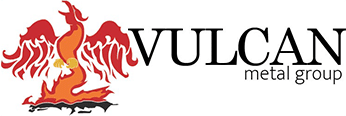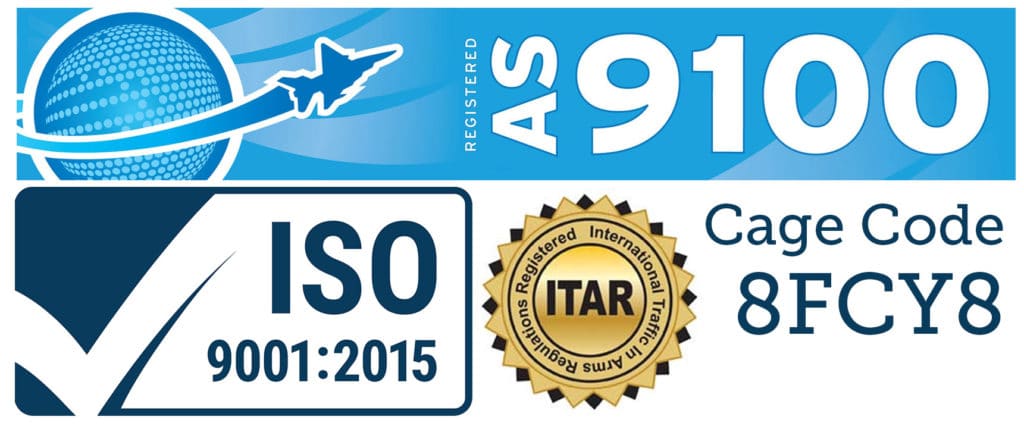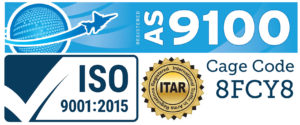Molybdenum TZM Alloy (Titanium-Zirconium-Molybdenum)
TZM alloy is a refractory composite alloy known for its resistance to high-temperature and thermal fatigue. The material is also popular for its stability, good thermal conductivity and high strength-to-weight ratio, making it an ideal material for use in harsh, demanding and critical environments.
In comparison to pure molybdenum, TZM alloy has better oxidation resistance (though it still may require protective coatings for long-term exposure to high temperatures and oxidizing environments), better creep strength, and a higher recrystallization temperature, making it a great choice for use in numerous industries, including aerospace, electronics, semi-conductor, furnaces and X-ray equipment.
Molybdenum TZM Key Properties:
| Property | Value |
| Chemical Composition | Mo (98%), Ti (0.5%), Zr (0.08%), C (0.03%) |
| Density | 10.22 g/cm³ |
| Melting Point | 2620°C (4748°F) |
| Tensile Strength | 690 MPa at 25°C |
| Yield Strength | 480 MPa at 25°C |
| Elongation at Break | 10% at 25°C |
| Thermal Conductivity | 130 W/m·K at 20°C |
| Specific Heat Capacity | 0.276 J/g·K |
| Coefficient of Thermal Expansion | 5.4 x 10^-6 /°C (20-1000°C) |
| Hardness | 250 HV |
| Electrical Conductivity | 18.7% IAC |
| Modulus of Elasticity | 329 GPa |
Aerospace and Spacecraft Vehicle Applications—
Structural Applications
TZM is used in critical aerospace structural supports and components, including engine systems, engine mounts, gas turbine components, gas turbine blades, and hypersonic vehicle structures. Once again, the material’s high strength, stiffness, resistance to extreme temperature and pressure, and overall durability make it a frequent choice.
Propulsion Systems and Hypersonic Vehicles
Rocket Nozzles & Combustors: Rocket nozzle temperatures during take-off can often reach between 2,000 to 3,500 degrees Celsius (3,632 to 6,332 degrees Fahrenheit). The exact temperature depends on various factors including the type of propellant used and the specific design of the rocket. TZM is typically used in the design of rocket nozzle throats, combustors and other parts exposed to direct combustion heat, since the material can withstand high temperatures and pressures generated during rocket propulsion and rocket exhaust, making it an excellent material selection for these components.
Hypersonics is the study of flight at speeds at Mach 5 and higher. Though engineers continue to grapple with challenges related to physics, aerodynamics, and heat-related design, TZM is a material that is used in hypersonic vehicle leading edges and nose cone design, since they experience the most intense heating due to aerodynamic friction. TZM withstands extreme temperatures at hypersonic speeds without deforming or melting.
Thermal Barrier Coatings, Heat Shields and Thermal Protection Systems
High-temperature resistance makes TZM suitable for applications where thermal insulation and protection are required to shield the vehicle’s interior and sensitive components from extreme heat during atmospheric re-entry. It’s a reliable substrate material for thermal barrier coatings (TBCs) applied to aerospace engine components to protect them from high-temperature oxidation and corrosion, thus improving their longevity and performance. The material is also used in the construction of heat shields, rocket thrusters and thermal protection systems including reaction control systems, for spacecraft and re-entry vehicles.
TZM Applications in Electronics
In the electronics industry, TZM alloy is valued for its high thermal and electrical conductivity, as well as its stability at elevated temperatures. Here are some specific ways it is used:
- Contacts and Connectors: TZM is used to manufacture electronic and electrical contacts and connectors that need to withstand high temperatures and mechanical stress without degrading. Its ability to maintain conductivity and structural integrity at high temperature makes it ideal for these applications.
- Semiconductor Physical Vapor Deposition and Thin-Film Deposition: Physical Vapor Deposition (PVD) involves vaporizing the solid material, in this case TZM, and condensing it onto the substrate using a sputtering process. The result a uniform and conformal material coating. It is widely used in industries such as semiconductors, also in aerospace and biomedical, where thin film properties are critical for performance and reliability. TZM’s high melting point and resistance to thermal shock ensure long-lasting and reliable performance.
- Heat Sinks and Thermal Management: Due to its excellent thermal conductivity, TZM is used in heat sinks and other thermal management components that dissipates heat from electronic devices. This helps prevent overheating and ensures reliable operation of electronic circuits.
- Vacuum Furnace Components: TZM’s resistance to high temperature and vacuum environments makes it suitable for heating elements, shields, and support structures used in vacuum furnaces. These components are essential for manufacturing processes that require precise temperature control and contamination-free environments.
- X-ray Tube Components: The alloy is used in the manufacture of anodes and other components in X-ray tubes due to its high melting point and ability to withstand intense thermal loads. This ensures the durability and performance of X-ray equipment.
Fabrication Considerations:
TZM is a hard material, so machining it requires specialized tools and techniques, often involving carbide tools and slow feed rates to avoid excessive tool wear. After the initial machining process a grinding and finishing process may be required to achieve the final dimensions and surface finish. Vulcan Metal Group’s precision machining services are capable of hold tolerances to +/1.001”, ensuring component meet exacting specifications.
Reach out today to consult with a Vulcan Metal Group materials expert about your project.
Address
Vulcan Metal Group LLC
23888 Madison Street
Torrance, CA 90505
United States
Phone / Fax
Phone: +1 310.882.6841
Fax: +1 310.893.0579
Cage Code
8FCY8
Quality Policy: Vulcan Metal Group, LLC. supplies mission critical, special purpose materials, and products at a competitive price. The company’s quality system is registered to ISO 9001 and AS9100 and follows its principles for the governance of the business. An active continual improvement program and compliance with all applicable OSHA, federal, and state regulations is maintained.


